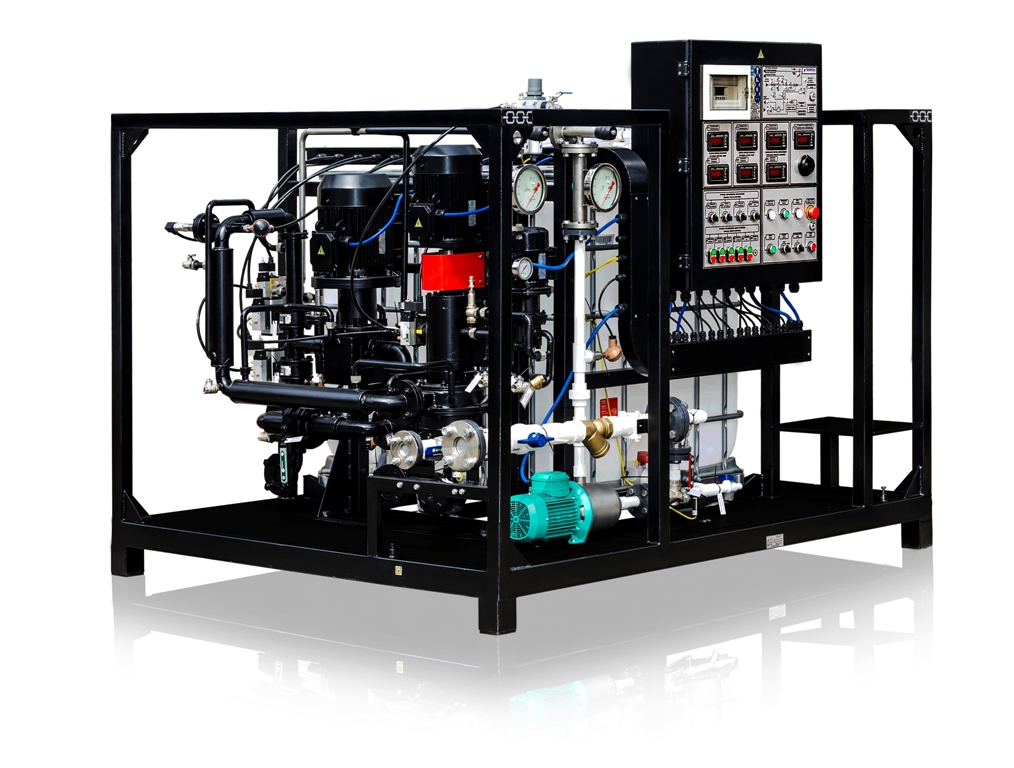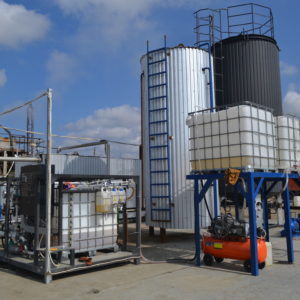USB-1 bitumen emulsion unit 1 m3/hour production capacity

The USB-1 unit is designed is such way, that it can be used for production of any type of bitumen emulsion (anionic or cationic)
Emulsions are an essential part of modern road construction. Road building companies use emulsions for priming the road surface before applying asphalt, surface treatment, creating of a thin protective coating, patch repairs and preparation of cold asphalt mixtures.
The unit can be installed in any type of asphalt mixing factory and is designed for operation, both indoors and in open space under a canopy.
The USB-1 unit is semi-automatized and simple to operate, so it requires the only one machine operator.
| Specifications | Value |
| Maximum production capacity (preparation time included), m3/hour | 1 |
| Minimum bitumen consumption, m3/hour | 0.97 |
| Water consumption, m3/hour | 0.6–0.7 * |
| Flux consumption, dm3/hour | 0–50 * |
| Acid (alkali) consumption, dm3/hour | 1–20 * |
| Emulsifier consumption, dm3/hour | 1–20 * |
| Adhesion additive consumption, dm3/h | 1–20 * |
| Max bitumen input pressure, MPa | 0.2 |
| Bitumen to mixer pressure, MPa | 1.4… 1.6 |
| Water phase to mixer pressure, MPa | 0.2 |
| Bitumen input temperature, °С | 140–160 |
| Water input temperature, °С | 40–60 |
| Max emulsion output head, m | 15 |
| Max nominal power, kW | 17 |
| Power voltage at 50 Hz, V | 380 |
| Compressed air supply, bar | 4–6 |
| Air consumption, dm3/min | 100 |
| Dimensions (L/W/H), mm | 2250/1750/1840 |
| Max weight, kg | 1050 |
* Depending on process formula
** The unit can inject various components into the emulsion: stabilizer, viscosity adjustment, adhesion additive as well as latex, which allow to produce a more thermally durable product.
- Production of various types of anionic and cationic emulsions (-RS, –MS and –SS-1,2, including anionic –h subtype);
- Production of high quality asphalt emulsion by adding plasticizers, adhesion additives and thinners to bitumen of any quality;
- Diluting of blend concentrate by water directly in the unit;
- Attainment of ASTM D 2397-98 and D977-98 standarts of emulsion;
- Simple to service and safe to operate (emergency interlocks);
- Minimal invironment impact.




